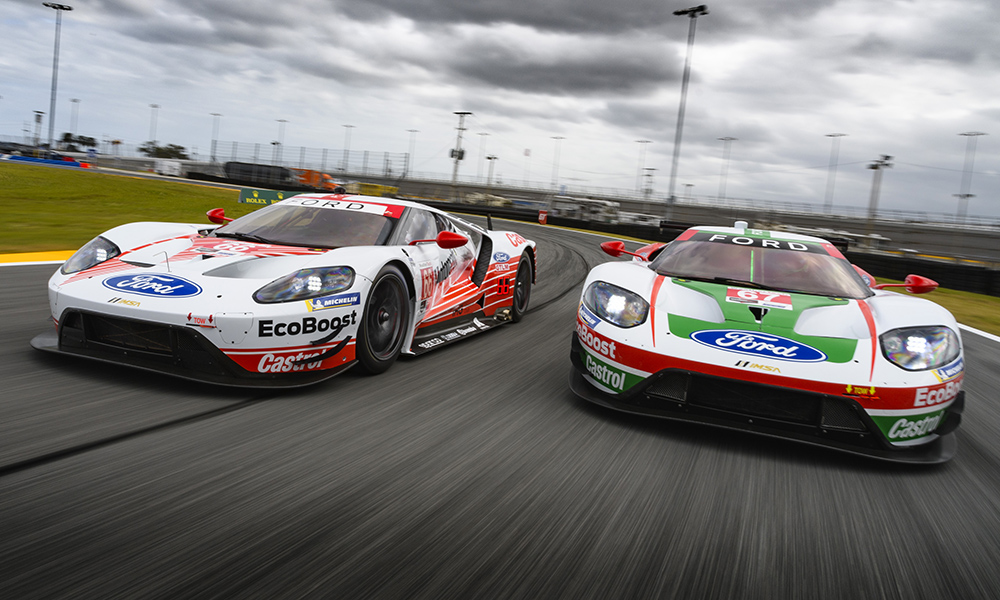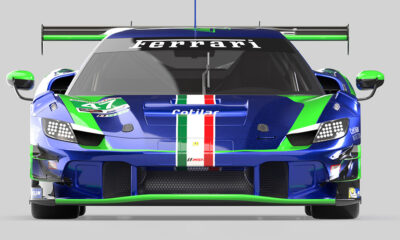
Photo: Ford
The future of the factory Ford GT effort hinges on the timeframe of a potential entry into the DPi class, according to Ford Motorsports global director Mark Rushbrook.
The American manufacturer, which is in the fourth year of its current four-year commitment to the GT Le Mans category of the IMSA WeatherTech SportsCar Championship, has continued evaluations for a potential step up to DPi competition by as early as 2020.
However, Rushbrook indicated the factory GTLM effort may be extended in order to maintain Ford’s involvement in the WeatherTech Championship should it determine a later start date for a possible prototype operation.
“Candidly, that’s part of the plan,” Rushbrook told Sportscar365. “They go hand in hand. Whatever happens with GT and DPi, they need to work together and bridging into each other.”
Another factor in Ford’s decision-making process, according to Rushbrook, is the makeup of the 2022 IMSA prototype regulations, which has been discussed further in a manufacturer meeting this week in Daytona.
He indicated that Ford would unlikely commit to to the current-gen DPi platform if the rules for 2022 are not favorable to the manufacturer, which is seeking “innovation and tech transfer.”
Ford was last represented in the top class of the WeatherTech Championship in 2014-15, which was used to develop the Ecoboost engines that ended up powering the Ford GTs.
Rushbrook said a similar tech-transfer purpose would need to be justified in order to return to prototype racing.
“There’s no certainty on what the future of prototype looks like globally,” Rushbrook said.
“If you look at what the FIA WEC is doing with the Hypercar concept and the path that’s going down and where IMSA goes and what that prototype future looks like…
“What it ends up looking like affects our decisions. So we can’t make a decision until we know what it looks like.”
As is the case with several current DPi manufacturers, Rushbrook said Ford is in favor of the adoption of a cost-effective hybrid system in the new regs.
A spec MGU-K system is understood to be among the options being explored for 2022.
“There’s a lot of different ways of doing it with electrified systems, even having the opportunity for software or algorithm development,” he said.
“Even if it’s not parts, that’s a great opportunity because that’s a lot of where we can learn as a company and transfer that to our road cars.
“It’s got to be affordable and it’s got to be relevant technology for our road cars that gives us the opportunity for the innovation and tech transfer.”
Should Ford commit to a DPi program for next year, Rushbrook said that a decision would need to be made “soon” in order to meet the development deadlines.
A 2020 start date would result in only a two-year eligibility window under the current DPi regs, although he said they would “not necessarily” need a longer period to commit.
“The sport needs to continue moving forward,” he said. “IMSA has done a fantastic job in getting us to where we are today as a sport.
“I think it was logical to extend DPi through to 2021. But I don’t think we would want to see it extended [further].”
























